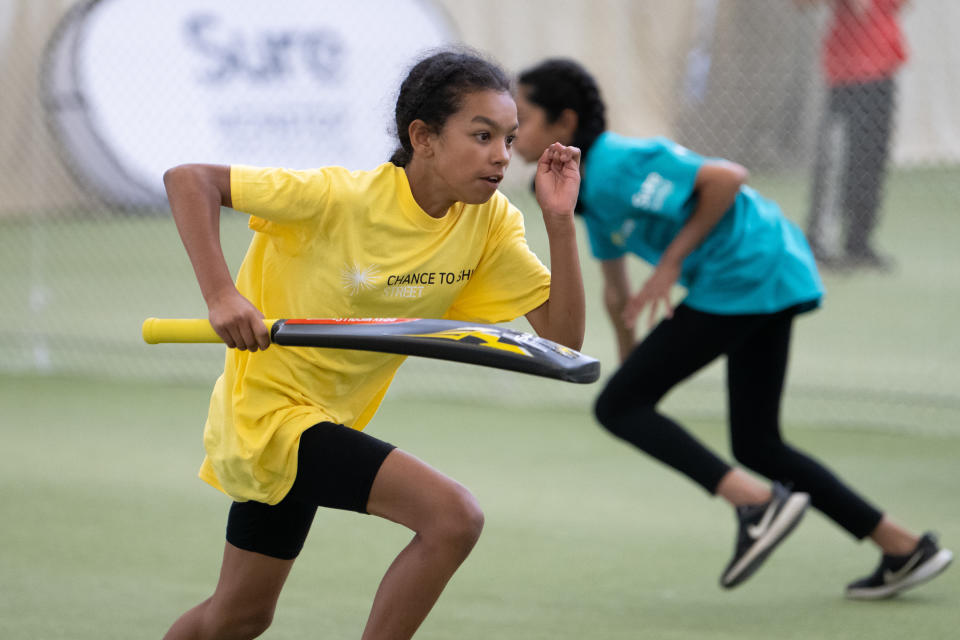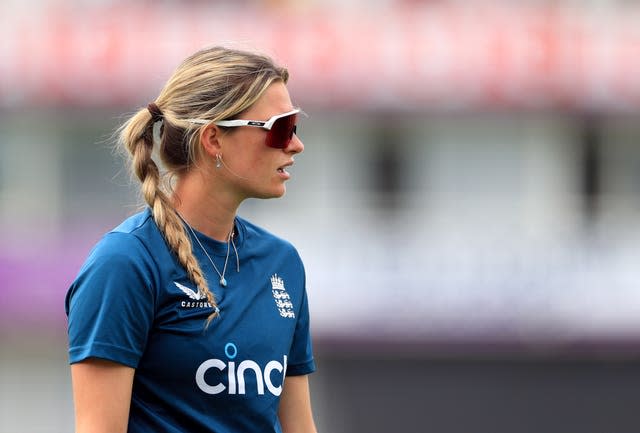Laura Cordingley, head of leading cricket charity Chance to Shine, has called on the professional game to look beyond its traditional pathways and tackle the “postcode lottery” that holds some young talent back.
As chief executive of Chance to Shine, Cordingley oversees a network that brings the sport to state schools and some of the poorest areas in the country with a reach of almost 600,000 children annually.
It is a long-term partner of the England and Wales Cricket Board, which has increased its financial support by £200,000 per year as part of its response to the damning ICEC equity report which exposed structural racism, sexism and class-based discrimination.
The organisation operates at a grassroots level – running nearly 300 street cricket clubs last year, and working in over half of state primary schools in England and Wales since 2017 – but celebrated its first two Test-playing graduates when Lauren Bell and Issy Wong debuted for England Women in June 2022.

That was a landmark moment for a sport which sees a disproportionate number of its elite players come from a narrow stream of private establishments, but one that Cordingley believes could become a more familiar one.
“We do not exist to produce the next Mark Wood, Heather Knight or Moeen Ali, but we do exist to help young people reach their potential, whatever that may be,” she told the PA news agency.
“Historically, young people have been underserved in the communities we operate in. At the moment, it’s definitely still a postcode lottery as to whether they are seen or not.
“We work with more than half-a-million kids a year – statistically a percentage of those will be very talented. We have a duty to make sure these young people are seen. In the past we’ve been scared about getting into this conversation but Lauren and Issy gave us a platform to talk in a different way about the journey.
“We are not talent ID experts, I can’t go into a school and spot the next Ben Stokes, but we do understand the barriers that stop young people accessing sport.”

There are several of those, not least the most basic tool of the trade. Many Chance to Shine street clubs use tape-balls – tennis balls wrapped in electrical tape, which add weight and encourages swing – rather than the traditional hard leather ball.
That is a typical entry point for young players in South Asia, including current stars like Shaheen Afridi and Rashid Khan, but has been less successfully integrated on these shores.
“Cost is a barrier, location is a barrier, transport is a barrier but so is hard ball. There has to be more we can do to ask if it has to be hard ball only at such an early stage,” said Cordingley.
“We need to be more open-minded as a game to the different types of cricket that can be played and how different young people display talent. We want to change people’s perceptions about what good cricket can look like.
“There are green shoots emerging but I think we still have a long way to go. Tape-ball and street cricket have sat outside the traditional pathway for so long but that’s not a good enough reason. You’ve only got to look at the Asian continent to see so many wonderful cricketers coming through tape ball. If it can happen there, I don’t see why it can’t happen here.”
Cordingley sees the potential for 2024 to be a time of positive change, buoyed by her dealings with the current ECB hierarchy, but insists the issue cannot be allowed to fall off the radar.
“There are people at the top of the ECB now who are absolutely committed to making change and I believe they will keep looking to find ways of doing that,” she said.
“The additional funding announcements for ourselves and others are a good start. They’ve recognised there are different ways of doing things and empowered organisations to do more.
“But I don’t want to belittle the scale of the challenge or say it’s all wonderful because it’s not. With the ICEC report we had the opportunity to speak and be heard but there is now an awful lot of work to be done over the next year in particular.”
Article courtesy of
Source link